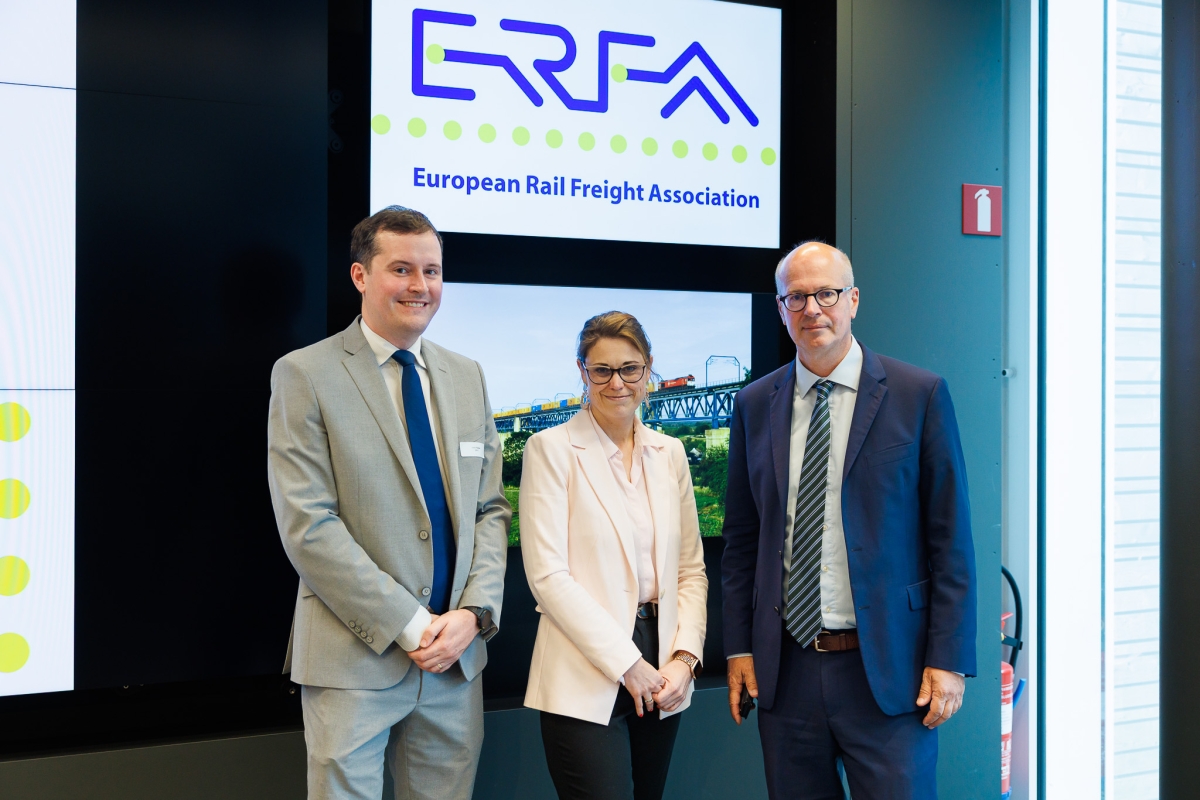When it presented the Greening Freight Transport Package in summer 2023, the European Commission promised “more economic gains with less environmental impact.” With today’s adoption by the Council of a general approach on the weights and dimensions of commercial road vehicles, the road transport sector can expect economic gains – but society will have to wait for any reduction of the environmental footprint of logistics.
Read moreThe Board of Directors has appointed Maria Price as the new Secretary General of ERFA.
Read moreLast week, EU decision-makers concluded in trilogue a final agreement on the new Railway Infrastructure Capacity Regulation that should now be formally adopted by the two co-legislators. Even though the final version could have been more ambitious, especially in the timeline, it could mark a step in the right direction if all actors commit to make it work.
Read moreThe recent Commission Communication on High-Speed Rail barely mentioned rail freight despite strong interlinks between both traffic. Rail freight would benefit from the same level of attention and strategic approach. As the Communication also underlines several joint challenges faced by both high-speed and rail freight, ERFA will make sure the voice of private and independent rail freight companies is being heard when confronting them.
Read moreDuring its last meeting, the Board of Directors of the European Rail Freight Association (ERFA) welcomed Rail Cargo Carrier (RCC) as its newest member. Headquartered in Budapest, Rail Cargo Carrier is a railway undertaking active in 13 European countries.
Read moreThe rail sector welcomes the positive signal that the European Commission has sent with its proposal for the continuation of the Connecting Europe Facility (CEF) as part of the EU Multiannual Financial Framework (MFF) 2028-2034, published on 16 July 2025. The signatory associations call on Member States governments and MEPs to provide unwavering support for the CEF Transport programme.
Read moreERFA will begin the search for a new Secretary General to lead the activities of the association in Brussels. ERFA, founded in 2002, acts as the voice for private and independent rail freight companies active in the European Union. The Secretary General will be responsible for leading the activities of the association in Brussels.
Read moreMilitary mobility, like freight, is reliant on high performing international corridors which facilitate longer and heavier trains. Like freight, national barriers and administrative burdens are also a barrier to effective military mobility. The infrastructure needs of freight and military are therefore aligned. This was the main takeaway from the ERFA annual event on 24 June in Brussels where military and industry representatives, as well as the new ERA Executive Director Oana Gherghinescu, discussed what rail needs to be ready for a changing world.
Read moreThe signatories of this letter - representing rail freight and combined transport industries from several EU Member States as well as European associations - highlights that the performance of the German rail network is critical for the collective success of rail freight. More reliability and better infrastructure quality should be the priority as to keep European industry on track.
Read moreThe association representing the railway, inland waterway, maritime and intermodal sectors jointly call to not left Combined Transport behind. They call on the European legislators to recognise the substantial cost savings Combined Transport offers to society as a whole, to launch the first reading of the Combined Transport Directive, and to avoid solutions that backtrack on the current status quo.
Read moreThe latest IRG (Independent Regulators Group) Market Monitoring Report shows that the market share of competitors continues to grow with competitors accounting for 55% of the European rail freight market in 2023. This growth is driven primarily by the growth of new market entrants who have grown from 33% of the market in 2019 to 40% of the market in 2023. It must be recognised that this growth of total market share is against the backdrop of a decline of total rail freight volumes in 2023.
Read moreThe EU-wide deployment of on-board and trackside ERTMS will improve interoperability, increase capacity and reinforce rail safety, therefore enabling the conditions for a Single European Railway Area. However, a series of difficulties including the increasing divergences of applying the ERTMS technology nationally and the absence of a business case for railway undertakings are putting ERTMS on the verge of losing its original purpose. Avoiding a derailment of ERTMS urgently requires a new joint approach.
Read more

-min-1764237245.jpg)


-1759825841.jpg)
-1757059592.jpg)



